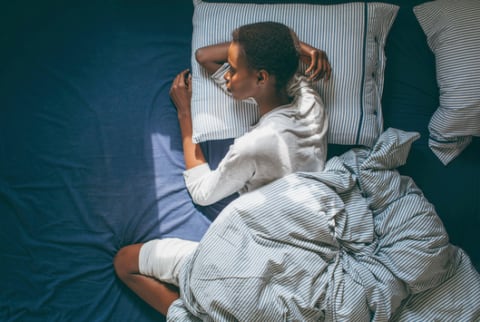Advertisement
Your Insomnia Might Actually Be A Survival Technique


Older adults typically have a harder time sleeping than their younger counterparts. But according to a new study out of Duke University, that's not just an annoying side effect of getting older—it might actually have evolutionary benefits.
For the study, researchers tracked the sleep patterns of 33 healthy men and women in Northern Tanzania who live a modern but typical hunter-gatherer lifestyle. During the day, they go out to forage for tubers, berries, honey, and meat, and they return at night to sleep indoors. Because they don't have electricity, the group follows the natural patterns of day and night.
While most members of the group slept from 10 p.m. to 7 a.m., some of them slept from 11 p.m. to 8 a.m., while others turned in early (around 8) and woke up at 6. The most interesting part about these patterns was that, over the 220 hours during which they were observed, there were only 18 minutes in the entire night when all adults were asleep. From an evolutionary perspective, this is probably a survival mechanism—if one member of the group is awake at all times, they'll be able to alert other members of the group to potential threats.
In other words, the "morning lark" tendencies many older people exhibit actually serve a purpose. "A lot of older people go to doctors complaining that they wake up early and can't get back to sleep," said study co-author Charlie Nunn. "But maybe there's nothing wrong with them. Maybe some of the medical issues we have today could be explained not as disorders but as a relic of an evolutionary past in which they were beneficial."
If you're an older adult who can't fall asleep, take comfort in the fact that this symptom is likely a product of biology. But if you're craving more shut-eye, consider taking up practices like yoga and meditation, exercising regularly, and sticking to a regular sleep schedule. And if the problems persist, don't be afraid to consult a doctor.